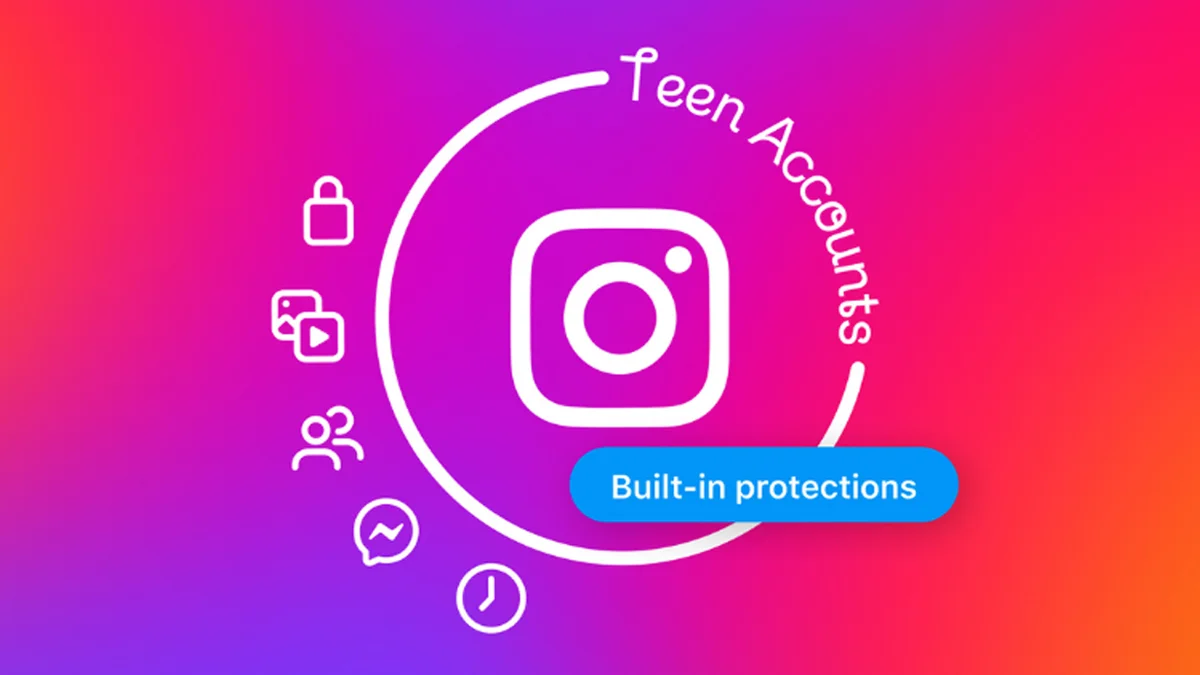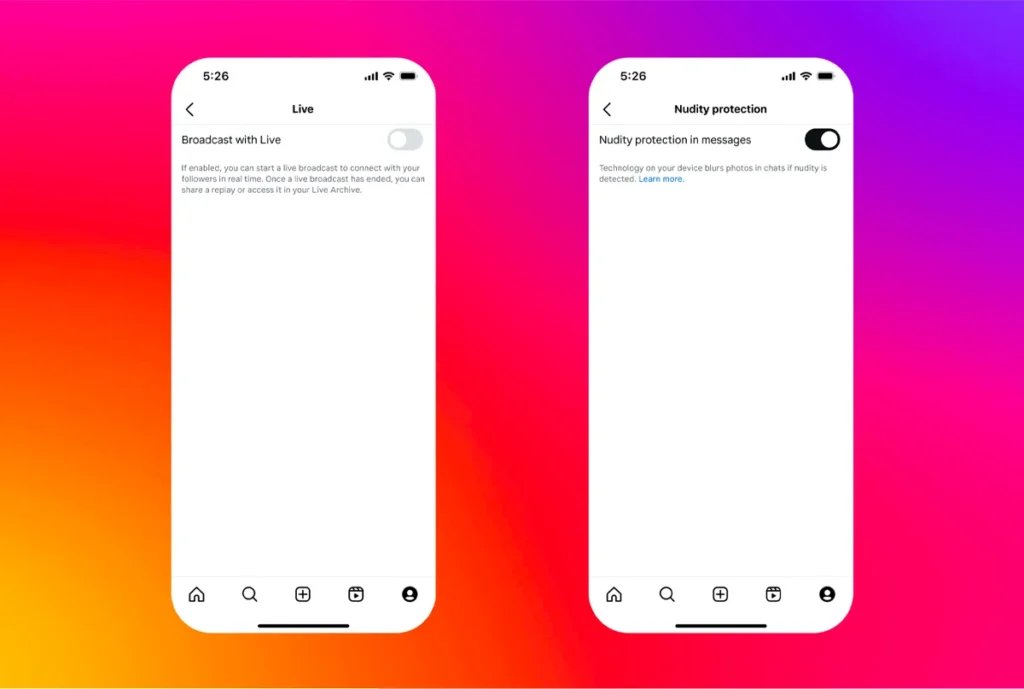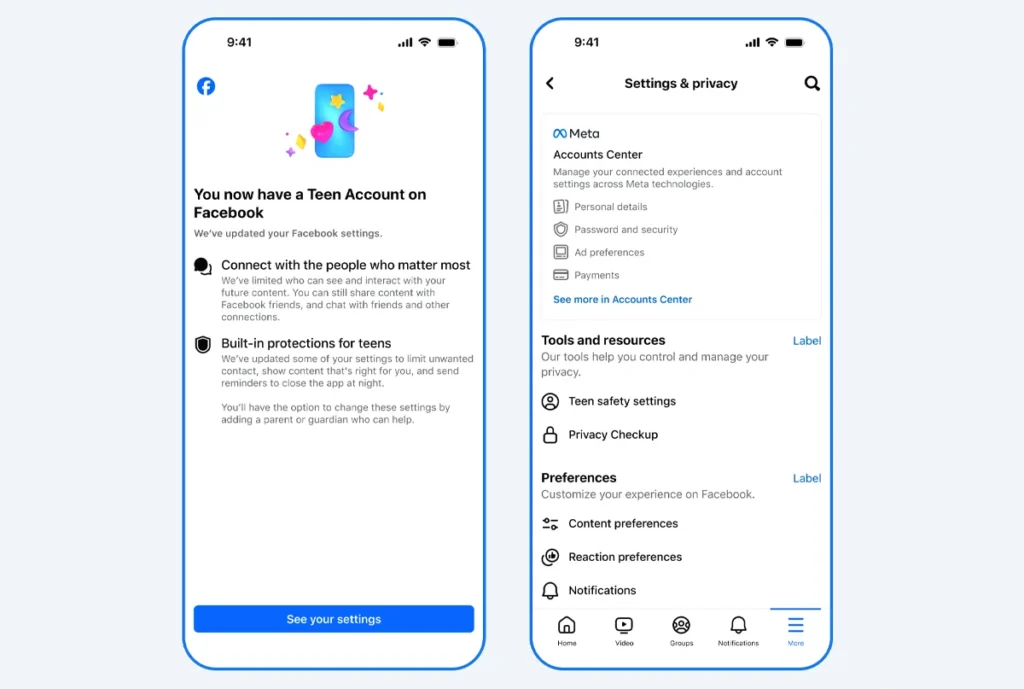Necessary Always Active
Necessary cookies are required to enable the basic features of this site, such as providing secure log-in or adjusting your consent preferences. These cookies do not store any personally identifiable data.
|
||||||
|
||||||
|
||||||
|

US social media giant Meta has added teen accounts to its Messenger and Facebook platforms, TechCrunch reported. Meta’s restricted teen accounts enroll young users automatically into an app with in-built protections. Initially, the teen account features will be available to users in the US, the UK, Canada and Australia.
The social media company first rolled out Meta teen safety features as part of Instagram under 18 account rules in September 2024. The rollout came soon after US lawmakers accused popular social networks of not doing enough to safeguard teens online.
“Teen Accounts on Facebook and Messenger will offer automatic protections to limit inappropriate content and unwanted contact, as well as ways to ensure teens’ time is well spent,” Meta posted on its website.

As Meta unveiled the Facebook teen settings on April 8, the company committed to include the new in-built protections for teen accounts on Instagram. Additionally, Meta introduced new parental controls on its platforms. Teens below the age of 16 must get the permission of their parents to adjust any settings.
“We’re adding new restrictions for Instagram Live and unwanted images in DMs. With these changes, teens under 16 will be prohibited from going Live unless their parents give them permission to do so. We’ll also require teens under 16 to get parental permission to turn off our feature that blurs images containing suspected nudity in DMs. We’ll make these updates available in the next couple of months,” Meta added.
Meta will be making these changes in the coming months. The latest Facebook and Messenger restrictions place teens in online experiences that limit their exposure to unwanted contacts and inappropriate content.

The new built-in protections introduce a range of safety features to teen accounts. The social giant says teens will get notifications reminding them to quit the social networks after using them for one hour a day. Meta platforms will also place teens on quiet mode overnight automatically.
Teens who use Instagram or Facebook will only get messages from users they have messaged before or the people they follow. The features limit comments, tags, and mentions to the same groups. Only their teen friends can view and reply to the stories they post on Meta platforms.
The latest changes demonstrate Meta’s commitment to address the teen mental health concerns. The US Surgeon General and several states have linked teen mental health issues to social media. Some states in the US started restricting teen access to social media without parental consent.
Meta’s restricted teen accounts have received mixed reactions from teen social media safety campaigners.
“Eight months after Meta rolled out Teen Accounts on Instagram, we’ve had silence from Mark Zuckerberg about whether this has actually been effective and even what sensitive content it actually tackles,” Molly Rose Foundation CEO Andy Burrows said.
According to Burrows, parents are still in the dark on whether the teen account settings protect their children from algorithmic recommendations of harmful or inappropriate content. For others, Meta’s teen accounts represent a significant step in the right direction.
“For once, big socials are fighting for the leadership position, not for the most highly engaged teen user base, but for the safest,” Social Media Consultancy, Battenhall CEO Drew Benvie said.
According to Meta, its protection features have been a success. The social giant says that 97% of teens aged between 13 and 15 have kept their built-in protection features on Instagram on. Citing a study by Ipsos, Meta says that 94% of parents surveyed say teen accounts are useful. 85% of parents admit that the accounts give teens positive experiences on Instagram.
The company has shifted 54 million teens to its Instagram teen accounts. The process will continue as the big tech rolls out the feature globally.